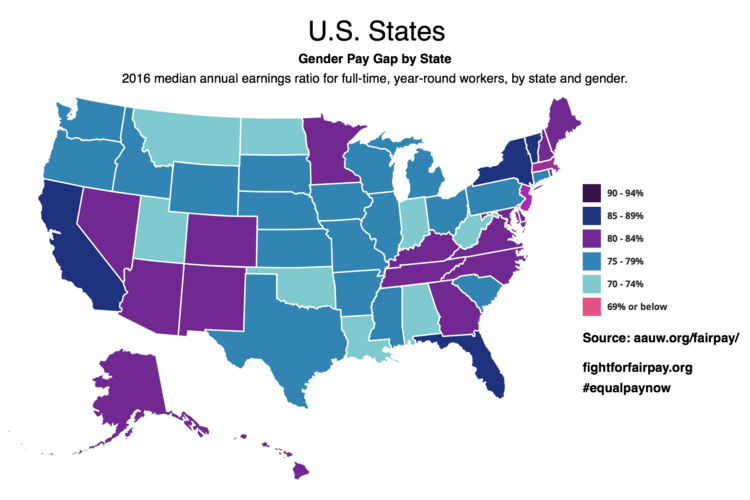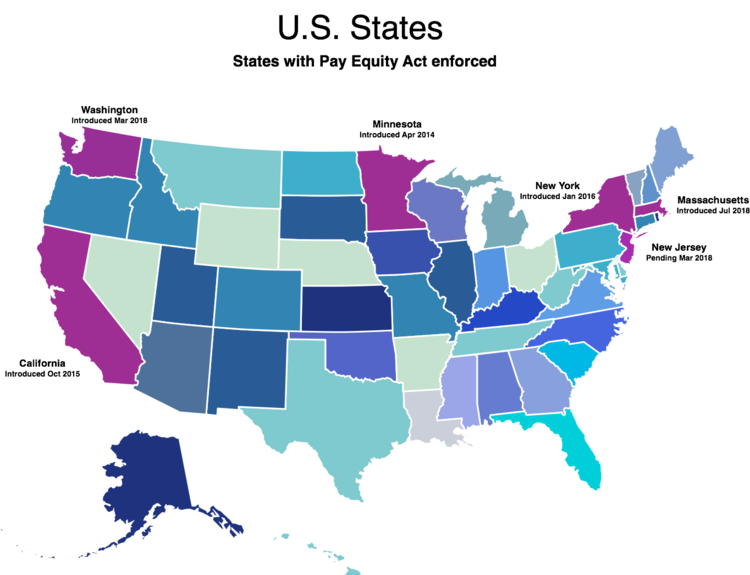Compliance Strategy for Massachusetts Equal Pay Act
PredictiveHR strongly supports the spirit of the Massachusetts Equal Pay Act effective July 1, 2018. We believe that organizations that embrace the spirit of the law will enjoy the benefits of doing the right thing as well as tangible competitive advantages in building and retaining a diverse workforce within a fair practice employment environment.
PredictiveHR can offer compensation analysis and restructuring to align with the Department of Labor guidelines by implementing policies and procedures to demonstrate a “good faith” effort for your organization that will align with both current and future legislation.

Female employees will have the ability and right to challenge your pay practices to uncover if they are affected by gender pay inequality. Civil action for unpaid wages, double punitive damages and legal fees is available as remedy.

Female employees will have the ability and right to challenge your pay practices to uncover if they are affected by gender pay inequality. Civil action for unpaid wages, double punitive damages and legal fees is available as remedy.
The Most Conservative Compensation Approach:
Organizations may attempt to abide by these new guidelines as legislation passes state by state. We believe that the optimal approach in anticipation of federal legislation is to implement the most conservative state policy to the entire organization.
This pro-active approach in implementing compensation policy will not only keep up with ever-changing compensation legislation but will also withstand DOL audits. Above all that, it is simply the right thing to do.
These revisions may include some or all of the following:
· Total Company Compensation Analysis:
· Pay history by job, state, performance and demographic.
· Job Reclassification for simplified and transparent salary benchmarks
· Revisions of all company job descriptions for full transparency of performance expectations.
· Compensation Metrics designed to justify salary offerings for overlapping positions.
· Evaluations of current compensation structures by division, duration of employment and demographic.
The Attorney General of Massachusetts has allowed for companies to proactively review their current compensation structure and offerings in an effort to confirm that there is no pay inequity or take steps to rebalance your company’s current structure.
At PredictiveHR we understand that both for-profit and nonprofit organizations will need guidance when developing policies for compliance to new legislation and we can provide such services to employers.
Other Key Provisions:
The Massachusetts Equal Pay Act also adds several key protections for job applicants:
1. Employers may not prohibit employees from disclosing or discussing their wages.
2. Employers may not seek the salary or wage history of any prospective employee before making an offer of employment that includes compensation and may not require that a prospective employee’s wage or salary history meet certain criteria.
3. Employers may not retaliate against any employee who exercises his or her rights under the law.
Employees whose rights have been violated have three years from the date of an alleged violation to bring an action in court. A violation occurs when a discriminatory compensation decision is made or other practice is adopted, and each time an employee is subject to or affected, including each time wages are paid.
The Most Conservative Recruiting approach:
Due to the new regulations, recruiting practices will be heavily affected. At PredictiveHR we can offer organizations the following services for cost effective solutions to new hiring practices.
· Institute broad based organizational recruiting policies prohibiting questions regarding salary history.
· Provide training to all members of your organization to help them understand the new recruiting requirements. Often times non-managers are asked to conduct preliminary screenings of candidates.
· Create on-going presentations and trainings. Provide documented guidelines to all staff members so that all employees understand what they can and cannot ask during the interview process. Even if your organization does not operate in a jurisdiction that prohibits questions about salary history, organizations that take the most conservative approach will save time and money on future implementations and training.
· Use current compensation for similar positions and conduct compensation analysis early in the search process.
As you develop questions and market-based salary ranges, ensure that the candidate’s skills, experience, and qualifications align with the role. Companies should use current staff positions and salary to compare salary offerings for additional placement of the same or similar roles. This will help maintain consistency in overall company compensation practices and discourage pay inequity for similar positions.
Post a salary range for all positions for transparency. There are options to include language that will provide flexibility while providing a general salary range for the position. Organizations will always benefit from a direct approach. When salary ranges are shared upfront, candidates know what to expect and this can make the practice of hiring go more smoothly particularly during salary negotiations.
People Analytics
As organizations tackle how to comply with the Equal Pay Act, it may make sense to consider leveraging People Analytics software. The PredictiveHR Analytics platform can assist greatly in breaking down the pay equity problem with precision and potentially examining other areas of the organization’s employment process such as turnover, employee engagement, workforce planning and a range of other opportunities to improve organizational performance.
